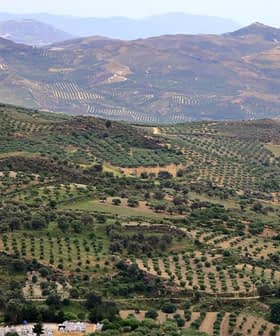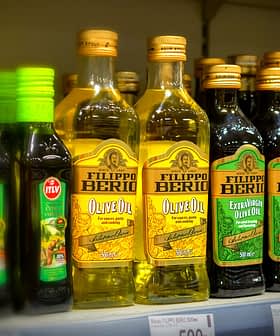Supermarkets in Spain Accused of Pricing Olive Oil Lower Than Cost
Supermarket chains are repeatedly reported for infringing the law by reducing prices lower than cost, while olive oil producers are losing a lot more than their patience.
Spanish law prohibits selling products below their cost of origin, with some exceptions. The farmer’s organization UPA and the Community of Madrid are taking legal action against supermarket chains for violating this law by offering olive oil at prices below the minimum set price.
Spanish law prohibits the reduction of the sales price of an article to lower than its cost at the origin. For example, if bottled water is purchased at 50 cents per unit from a supplier, it may not be sold to the public at 45 cents.
Although there are some exceptions to the law, the farmer´s organization, UPA, and the Community of Madrid hold firm that some supermarket chains are in violation of the law for their olive oil prices and are seeking legal action.
UPA has repeatedly reported supermarkets such as Dia, El Corte Inglés, Carrefour, Supercor and Carrefour online for illegal practices to the Agency for Alimentation Information and Control.
The Agency for Alimentation Information and Control was established in 2013 under the Ministry of Agriculture, Alimentation and the Environment in order to improve this current situation and protect the rights of producers.
They were first put to the test in 2014 when UPA reported Carrefour in violation of the law for selling 10 liters of olive oil for €18.85 (€1.89/liter) when the minimum price had been set at €2.20/liter at the time.
Two years have passed since that first reporting and it remains common practice across Spain to lure customers by offering extremely low prices on staples like milk and olive oil.
The sales method is known as bait “cebo” products or hooks (enganches). Many companies are getting away with it, while the olive oil market is devalued and producers suffer.
Last week the news spread on UPA´s reporting of Dia´s repeat offence based on a flyer that was distributed offering refined olive oil for €2.19/liter when the price for lampante (the lowest grade of olive oil) has been around €2.75 for the last 12 months and never under €2.50.
The Community of Madrid took action by fining El Corte Ingles €3,000 just a few days ago on similar grounds. And although Madrid considers the infraction severe, many in the olive oil sector are calling the penalty a mere slap on the wrist for such a large department store. According to El Mundo sources, the renowned store has denied the accusations.
Those in the olive oil sector are hoping that other communities will follow in Madrid´s footsteps by fining more violators. Action could help bring justice to their hard work and protect the future of the country´s olive oil industry.









